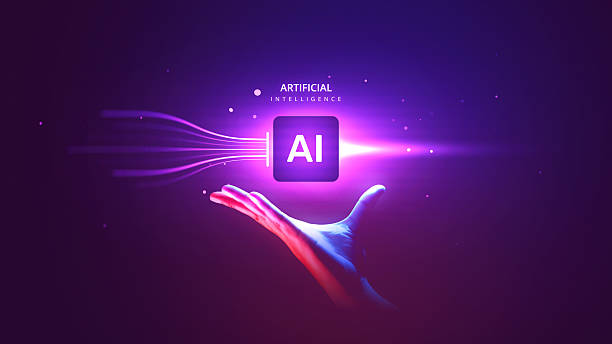What is an AI Assistant and How Does It Work?
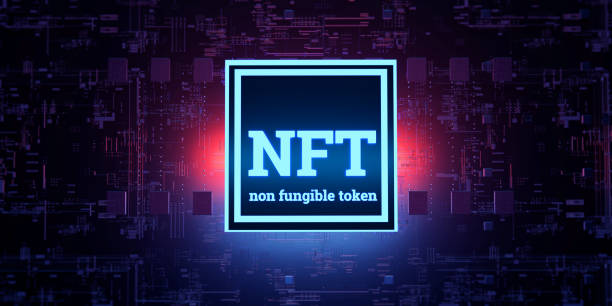
An #AI Assistant is a software or system designed using Artificial Intelligence and Natural Language Processing (NLP) to help users with various tasks.
These tasks can include answering questions, providing information, performing calculations, managing schedules, controlling smart devices, and many more.
The basic function of an AI assistant is based on data analysis, pattern recognition, and machine learning.
In short, an AI assistant receives input from the user (in the form of text or voice), processes it, understands its meaning, and then uses the knowledge and information it has to provide an appropriate response or take a related action.
Natural Language Processing plays a key role in this process, as it allows the AI assistant to understand and interact with human language.
Today, AI assistants are available in various formats, including standalone software, mobile applications, and integrated into smart devices such as mobile phones, smart speakers, and cars.
The popularity of AI assistants is increasing due to their ease of use, extensive capabilities, and ability to be personalized.
AI assistants are rapidly becoming an integral part of our daily lives.
Are you lagging behind in competition with large online stores?
Rasawb, with professional e-commerce website design, brings your business online and increases your market share!
✅ Increase brand credibility and customer trust
✅ Easy shopping experience leads to more sales
⚡ Get a free website design consultation right now!
Types of AI Assistants Available in the Market
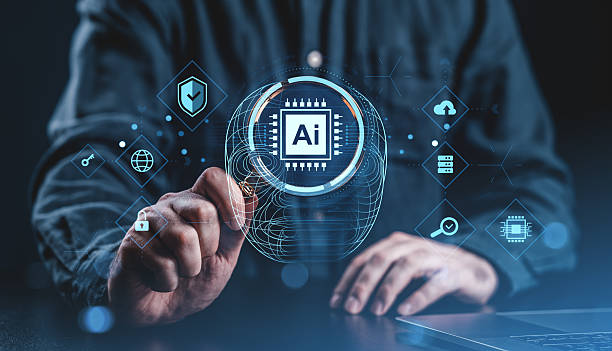
The market for #AI #assistants is very diverse, and different types of these assistants with various capabilities and applications are available.
Some of the most well-known and widely used types of AI assistants include:
Voice Assistants: These types of assistants, such as Siri, Alexa, and Google Assistant, interact with the user via voice.
Users can ask questions, play music, make calls, and perform many other tasks using voice commands.
Voice AI assistants are very popular due to their ease of use and hands-free capability.
Chatbots: Chatbots are computer programs designed to simulate conversation with users.
These AI assistants are used on websites, messaging applications, and other platforms to answer user questions, provide support, and offer various services.
Virtual Assistants: These AI assistants are usually used in work and business environments to help employees perform various tasks such as scheduling meetings, managing emails, and preparing reports.
Virtual assistants typically have more advanced capabilities than voice assistants and chatbots.
The choice of the right type of AI assistant depends on the user’s needs and preferences.
Each of these assistants has its own strengths and weaknesses and is better suited for specific applications.
AI assistants are constantly being developed with increasing advancements.
Extensive Applications of AI Assistants in Daily Life
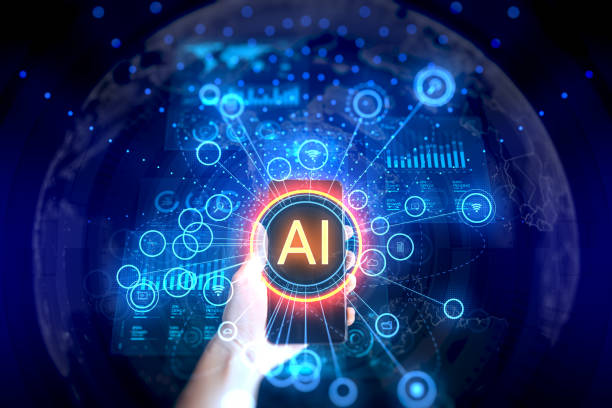
AI assistants are increasingly infiltrating our daily lives and are used in various fields.
Some of the most important applications of these assistants include:
Information Management and Access to Knowledge: AI assistants can help users find the information they need through the Internet.
They can answer users’ questions, provide summaries of articles, and collect information on various topics.
With AI assistants, there is no need to spend a lot of time searching for information.
Task Automation: AI assistants can automate many everyday tasks, such as setting reminders, scheduling meetings, sending emails, and paying bills.
This allows users to spend their time on more important tasks.
Using AI assistants increases productivity.
Smart Device Control: AI assistants can be used to control smart devices at home or in the workplace.
Users can use voice or text commands to turn lights on and off, adjust the thermostat temperature, lock and unlock doors, and perform many other tasks.
Using AI assistants for smart homes is very common.
Entertainment: AI assistants can be used to play music, read audiobooks, tell jokes, and provide other entertainment services.
They can help users spend their leisure time in the best possible way.
Education and Learning: AI assistants can be used as a tool for learning and education.
They can answer questions from students, provide more explanations on various topics, and help them with homework.
The use of AI assistants in education is increasing.
| Feature | Advantage |
|---|---|
| Fast access to information | Saving time and energy |
| Task automation | Increased productivity and focus on more important tasks |
| Smart device control | Ease and convenience of use |
Challenges and Limitations of Using AI Assistants

Despite the many advantages, the use of AI assistants also comes with challenges and limitations.
Some of these challenges include:
Privacy and Data Security: AI assistants collect a lot of information from users to provide their services.
This information can include personal information, information about online activities, and location information.
Maintaining the privacy and security of this information is an important challenge.
Strong security measures must be taken to protect this information from unauthorized access.
If privacy is not respected, users may refrain from using AI assistants.
Accuracy and Reliability: AI assistants are not always accurate and reliable.
They may make mistakes in correctly understanding user commands, provide incorrect answers, or even take unwanted actions.
This can be annoying and even dangerous for users.
Improving the accuracy and reliability of AI assistants is an important challenge.
Dependence and Skill Reduction: Excessive use of AI assistants can lead to users becoming dependent on these assistants and reducing their skills.
For example, users who constantly use AI assistants to find information may lose their information search skills.
Maintaining a balance between using AI assistants and maintaining personal skills is an important challenge.
Bias and Discrimination: AI assistants are trained based on data that may contain bias and discrimination.
These biases can be reflected in the behavior and responses of AI assistants and lead to discrimination against specific groups of people.
Removing bias and discrimination from AI assistant training data is an important challenge.
Also, AI assistants still face limitations in understanding natural language and answering complex questions.
AI assistants are constantly improving and developing, but there is still a long way to go to reach the desired level.
Tired of missing out on business opportunities due to not having a professional corporate website? Don’t worry anymore! With Rasawb’s corporate website design services:
✅ Your brand’s credibility and professionalism increase.
✅ You attract more customers and sales leads.
⚡ Get a free consultation to get started now!
What Will the Future of AI Assistants Be?

The future of AI assistants looks very bright and promising.
With the increasing advances in the field of artificial intelligence, natural language processing, and machine learning, AI assistants are expected to have much more capabilities in the future and play a more important role in our lives.
Greater Integration with Daily Life: AI assistants are expected to be increasingly integrated with our daily lives and be used in areas such as healthcare, education, transportation, and entertainment.
Increased Intelligence and Learning Capabilities: AI assistants will become more intelligent in the future, and their learning capabilities will increase significantly.
They will be able to learn from their experiences, identify complex patterns, and make better decisions.
Greater Personalization: AI assistants will be able to fully adapt to the needs and preferences of each user in the future.
They can provide information and services that are specifically designed for each user.
More Natural and Human-Like Interaction: Interaction with AI assistants will become more natural and human-like in the future.
They will be able to understand human emotions, provide empathetic responses, and establish emotional connections with users.
Independent AI Assistants: In the future, we may see the emergence of independent AI assistants that are capable of performing complex tasks without the need for human intervention.
These assistants can be used in areas such as financial management, elderly care, and scientific research.
AI assistants are becoming an integral part of our lives.
However, the development of AI assistants also comes with challenges.
Issues related to privacy, data security, bias and discrimination, and dependence on these assistants need to be taken seriously.
AI assistants require continuous development and improvement.
How to Choose the Best AI Assistant for You
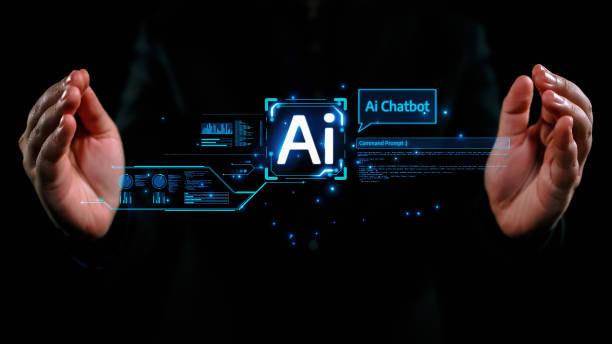
Choosing the best AI assistant depends on your personal needs and preferences.
For proper selection, consider the following:
Identify Your Needs: First, determine what you expect from the AI assistant and what tasks you want to entrust to it.
Do you need a voice assistant to control your smart devices? Do you need a chatbot to answer your customers’ questions? Or do you need a virtual assistant to help with your administrative tasks?
Compare the Different Capabilities of the Assistants: Different AI assistants have different capabilities.
Some of them perform better in understanding natural language, others are more accurate in providing information, and still others are stronger in automating tasks.
Compare the different capabilities of the assistants with your needs and choose the assistant that best matches.
Check User Reviews: Before buying an AI assistant, check reviews from other users about it.
These reviews can help you learn about the assistant’s strengths and weaknesses and make a better decision.
Free Trial: Many companies offer a free trial of their AI assistants.
Take advantage of this opportunity and try out different assistants to see which one is right for you.
Privacy and Security: Pay attention to the privacy and security of your information.
Choose an assistant that has transparent policies regarding the collection and use of user data and uses strong security measures to protect this data.
The AI assistant should guarantee the security of your information.
AI assistants are a powerful tool that can help you with many tasks.
Ethical Considerations in the Development and Use of AI Assistants
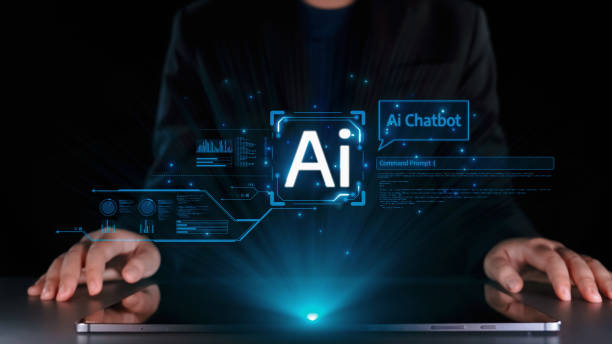
The development and use of AI assistants comes with important ethical considerations that must be addressed:
Transparency and Accountability: The algorithms used in AI assistants must be transparent and their performance explainable.
In case of errors or damage, it should be clear who is responsible.
Privacy and Security: AI assistants must protect the privacy and security of user information.
The information collected must be stored securely and used only for specific purposes.
Fairness and Non-Discrimination: AI assistants should not make decisions based on race, gender, religion, or other discriminatory factors.
The algorithms used should be designed to prevent discrimination.
Impact on Employment: Task automation by AI assistants can lead to job losses.
Programs need to be considered for retraining and supporting people who lose their jobs.
Control and Autonomy: It should be clear who has ultimate control over the AI assistant and to what extent they can be allowed to act independently.
AI assistants should not be designed to get out of human control.
AI assistants should serve humans and not vice versa.
Responsible development and use of AI assistants is very important for our future.
| Ethical Issue | Description |
|---|---|
| Privacy | Ensuring the protection of users’ personal information |
| Fairness | Preventing discrimination in decision-making |
| Accountability | Specifying responsibility in case of errors |
How Can AI Assistants Help Businesses?
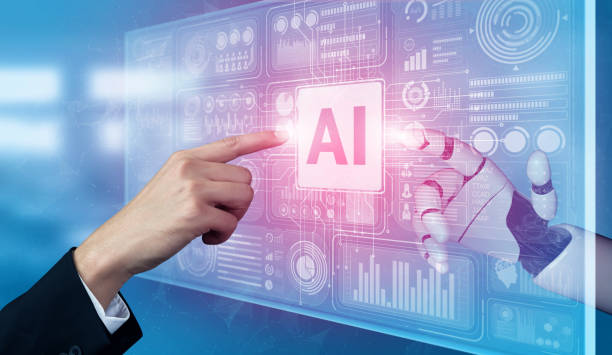
AI assistants can help businesses in various areas, including:
Improving Customer Service: Chatbots and voice assistants can answer customers’ questions, solve their problems, and provide support.
This can lead to improved customer satisfaction and increased loyalty.
Increasing Productivity: Virtual assistants can automate administrative tasks, schedule meetings, and prepare reports.
This can allow employees to spend their time on more important tasks and increase the overall productivity of the organization.
AI assistants are a powerful tool for businesses.
Reducing Costs: Task automation by AI assistants can lead to reduced labor costs and increased efficiency.
Improving Decision-Making: AI assistants can analyze data and identify hidden patterns.
This information can help managers make better decisions.
Creating Personalized Experiences: AI assistants can create personalized experiences for customers by collecting information about them.
This can lead to increased sales and customer loyalty.
AI assistants help businesses connect better with their customers.
AI assistants are constantly evolving, and new applications for them are being discovered.
Are you unhappy with the low conversion rate of visitors to customers on your e-commerce site?
Solve this problem forever with professional e-commerce website design by Rasawb!
✅ Increase visitor-to-customer conversion rate
✅ Create a great user experience and build customer trust
⚡ Get a free consultation
Introducing the Most Popular AI Assistants in 2024
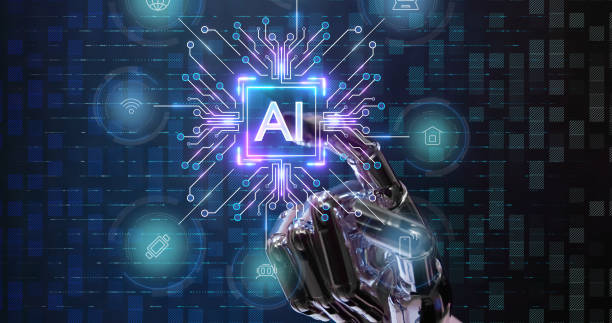
In 2024, several AI assistants have gained significant popularity:
Google Assistant: A powerful voice assistant that is available on mobile phones, smart speakers, and other devices.
Google Assistant is able to answer users’ questions, play music, control smart devices, and perform many other tasks.
Google’s AI assistant is one of the most popular.
Alexa: Another voice assistant developed by Amazon.
Alexa also has similar capabilities to Google Assistant and is available on Amazon Echo smart speakers and other devices.
Siri: Apple’s voice assistant that is available on iPhones, iPads, and other Apple devices.
Siri also has similar capabilities to Google Assistant and Alexa.
Microsoft Cortana: Microsoft’s virtual assistant that is available on Windows 10 and other devices.
Cortana can help users with administrative tasks, scheduling meetings, and preparing reports.
AI Chatbots: AI chatbots are used on various websites and messaging applications to answer users’ questions, provide support, and offer various services.
AI assistants are becoming more and more advanced.
Choosing the best AI assistant depends on your needs.
Important Tips for Safe and Effective Use of AI Assistants

For safe and effective use of AI assistants, consider the following:
Check Privacy Settings: Make sure you have configured your AI assistant’s privacy settings correctly.
This helps you have more control over the information the assistant collects.
Choose a Strong Password: Use a strong password for your account to prevent unauthorized access to your information.
Pay Attention to Your Voice Commands: Before issuing voice commands, make sure the AI assistant has heard your voice correctly.
This helps prevent unwanted actions.
Pay Attention to the Information You Share: Think carefully before sharing personal information with an AI assistant.
Do not share information that is not necessary.
Install Software Updates: Software updates usually include security fixes that protect you from security vulnerabilities.
AI assistants are a powerful tool, but they must be used correctly and with caution.
Correct use of AI assistants can make your life easier.
AI assistants are rapidly becoming a part of our daily lives.
Frequently Asked Questions
| Question | Answer |
|---|---|
| What is an AI assistant? | An AI assistant is a software program that, using artificial intelligence, can perform various tasks for users, such as answering questions, setting reminders, playing music, and managing calendars. |
| What are some of the most famous AI assistants? | Some of the most famous AI assistants include Apple’s Siri, Google Assistant, Amazon’s Alexa, and Microsoft’s Cortana. |
| How does an AI assistant work? | These assistants use Natural Language Processing (NLP) to understand user voice or text commands, and machine learning to improve performance and personalize responses. |
| What are the main uses of an AI assistant? | Main uses include setting alarms and reminders, playing music and podcasts, answering general questions, sending messages, making calls, controlling smart home devices, and providing weather or traffic information. |
| Can AI assistants speak with different accents? | Yes, many modern AI assistants can recognize and generate speech with different accents and languages. |
| What are the differences between an AI assistant and a chatbot? | An AI assistant is usually more comprehensive and can perform various tasks beyond answering text questions (such as controlling devices). Chatbots are mostly designed for text conversations on websites or messaging apps. |
| Is it safe to use an AI assistant? | Companies try to ensure data security, but there are concerns about privacy and storing voice data. Users should review their privacy settings. |
| What will the future of AI assistants be like? | In the future, AI assistants are expected to be smarter, more predictive, and more integrated with daily life and other devices, and be able to perform more complex tasks. |
| How can I activate an AI assistant? | They are usually pre-installed on smartphones and smart home devices. You can activate them by saying “Hey Siri”, “Ok Google” or “Alexa” and then give your command. |
| Can an AI assistant help me learn? | Yes, it can help with learning by providing information, defining words, translating texts, and even solving math problems. It can also play educational podcasts for you. |
And other services of Rasa Web advertising agency in the field of advertising
Smart direct marketing: Transform click-through rates with the help of Google Ads management.
Smart digital branding: Transform online growth with the help of custom programming.
Smart website development: An effective tool for digital branding with the help of optimizing key pages.
Smart advertising campaign: A quick and efficient solution for analyzing customer behavior with a focus on marketing automation.
Smart digital advertising: A new service to increase website visits through the use of real data.
And more than a hundred other services in the field of internet advertising, advertising consulting and organizational solutions
Internet Advertising | Advertising Strategy | Reportage Ad
Resources
What is an AI assistant? – Parsian Pajouh Knowledge-Based Company
,What is an AI Assistant?
,OpenAI ChatGPT AI assistant introduced; Is the killer of Google on the way?
,What is a virtual assistant? And what is its application? – Atipay Blog
? For the peak of your business in the digital world and reaching the peaks of success, Rasaweb Afrin Digital Marketing Agency with innovative services including modern user interface website design, SEO, and ad campaign management is with you to have a powerful and lasting presence in the online space.
📍 Tehran, Mirdamad Street, next to the Central Bank, South Kazerun Alley, Ramin Alley No. 6
“`


